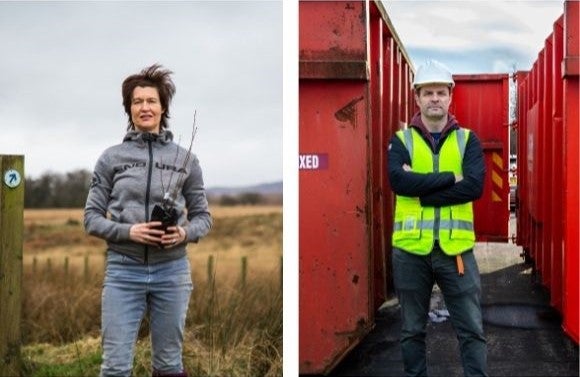When Endura launched their One Million Trees initiative at the start of 2020, they committed to planting one million trees annually for the next ten years to eliminate the brand’s carbon footprint. With the help of their reforestation partners in Mozambique, the first year’s target was exceeded by 30%, with more than 1.3 million mangroves planted in the Maputo Bay area and plans to start planting here in Scotland soon. With this important milestone met, Endura have now set a bold new target - to become CO2 negative by 2024.
Pamela Barclay, Endura’s co-founder and Brand Director, who initiated the One Million Trees projects and is leading efforts to reduce the brand’s environmental impact on a number of fronts is naturally delighted with the progress that’s been made. “With Covid-19 tragedy and disruption affecting communities around the world, it has meant so much more to have hit our Million Trees target this year and is a phenomenal start, but it’s just year one. Our ten year commitment to match this level of planting will deliver real benefits and enable Endura to achieve CO2 negative status very quickly”.
Carbon reduction is critical for the future of the planet but the tree planting has other benefits. The work that the tree planting project has undertaken on Endura’s behalf over the past year has helped to restore and re-forest coastal habitats, provide stability against erosion and improve ocean and coral reef health whilst at the same time providing a highly efficient method of absorbing carbon from the atmosphere. Mangrove has an extremely high carbon sequestration rate per hectare, as much as tropical rainforest, with over 12 kg of carbon absorbed by each tree every year. The project also has benefits for local communities, proving stable employment in one of the poorest and most underdeveloped countries in the world.
Sending orders out to Endura’s network of dealers and direct to consumers also has an impact on emissions but given that the relative distances are much smaller it has a lower impact than the process of moving containers from East Asia to its main markets in the UK, Europe and US.
Endura’s manufacturing, warehousing and design base in Scotland also has a footprint – mainly the electricity and natural gas used to power its 5,000 square meter facility in Livingston. The biggest reductions in emissions will come chiefly by switching to renewables, particularly for electricity, and this is something that is currently being pursued.
Cumulatively, the activities under the direct control of Endura represent around 74% of the total CO2 impact of their clothing. Consumer use – predominantly washing – contributes around 20% to a garment’s environmental impact and significant reductions can be made by influencing consumer behaviour in washing and extending the product’s life span.
Endura estimate that retail activities contribute 3% of an item’s emissions, with end-of-life management adding a similar proportion. Endura view end of life management as their responsibility, but from a CO2 emissions point of view it’s not the lowest hanging fruit. However, planning has started on an initiative to retrieve and fully recycle products alongside packaging such as LDPE bags, something that’s already in place as part of the European Outdoor Group’s Single Use Plastics project.
Whilst aggressively reducing CO2 emissions under their control is a key part of Endura’s future, the One Million Tree Initiative can reduce their net carbon footprint much more quickly. The mangrove restoration project in Mozambique was chosen as it offers particularly high levels of carbon sequestration per plant, but also because the project was ready to start planting immediately. Endura also plans to plant trees closer to home, next to the trails at its charitable trust centre in central Scotland where native woodlands are scheduled to start planting in 2021. This project will create a woodland of 85,000 broadleaf trees, capturing carbon and improving biodiversity on otherwise agriculturally unproductive land.
By pledging to plant one million trees per year over a ten-year timeframe, the carbon capture effect compounds as more and more trees are planted and then begin to reproduce naturally. This will see Endura first balance out the CO2 that their activities produce and rapidly move beyond this to remove much more carbon from the atmosphere than they emit. By 2030, Endura forecast that their net footprint will lock away more than 100,000 tonnes of atmospheric CO2 each and every year.
Answering criticism that it’s “cheating” to use tree planting to offset, Jim is adamant, “We're just trying to get a job done here and the fastest, most cost effective and powerful way of being able to do that is through carbon offset. If that’s cheating, then we're delighted to be cheats. All that matters at the end of this journey is to have reduced CO2 in the atmosphere, there are no special prizes for doing it the hard way.”
-094845.jpg)

-095849.jpg)
